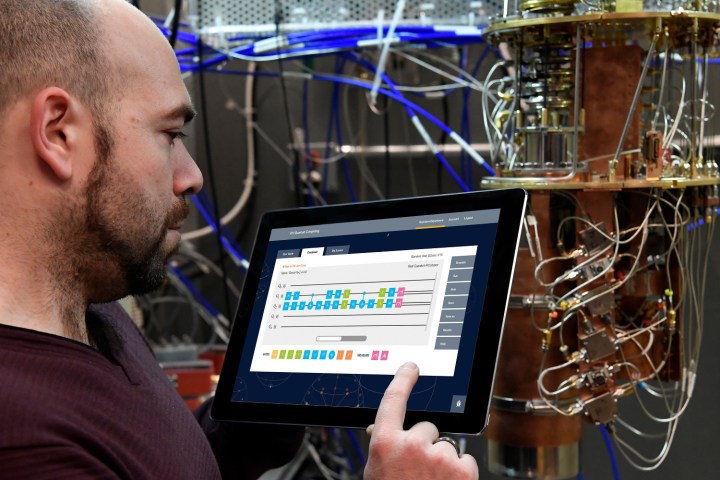
Quantum hardware has already been made available by the likes of D-Wave, but its hardware is limited in the kinds of computation it can achieve. IBM Q marks the first time that a universal quantum computer is being offered up. A universal quantum computer is capable of tackling problems that are too large for a conventional system, so IBM Q would have many applications beyond what’s possible with current technology.
IBM is pledging that universal quantum computing systems will be made available to select industry partners over the coming years. The company expects to increase the capabilities of the hardware as time goes on.
The goal is to produce a system with around fifty qubits, which should be able to demonstrate the benefits of quantum computing over traditional methods. IBM will collaborate with other companies and organizations to develop applications that harness the power of the new hardware.
“Classical computers are extraordinarily powerful and will continue to advance and underpin everything we do in business and society,” said senior vice president of IBM Systems, Tom Rosamilia. “But there are many problems that will never be penetrated by a classical computer. To create knowledge from much greater depths of complexity, we need a quantum computer.”
IBM is also making improvements to other areas of its quantum ecosystem. In May 2016, the company launched the IBM Quantum Experience, which offers online access to a five-qubit quantum computer, and has since been used for hundreds of thousands of experiments carried out by thousands of users.
Today, a new API is being released that simplifies the process of building an interface between the five-qubit quantum computer that’s at the heart of the IBM Quantum Experience, and classical computers. The online platform is also being outfitted with a new simulator that can model circuits with up to 20 qubits. In the first half of 2017, IBM will also release an SDK to help users build simple applications and software programs for use with the Quantum Experience.
It’s clear than IBM is eager to make quantum computers available to all, from enthusiasts to industry clients. IBM Q seems to be a long-term, far-reaching project, but it’s poised to help foster the next wave of advances in this field.
Lots of work has already been done to make quantum computing technologically possible, and now it seems that the focus is starting to shift toward applications. Over the next few years, it seems that we’ll see IBM create commercially available systems with steadily increasing qubit counts — but alongside that process, the company will work with others to hash out how this hardware can be put to good use.
If IBM Q is a success, it could help determine how quantum computers are utilized by ordinary people, as well as researchers and enterprise users. It’s one thing to design hardware that’s a step beyond classical computers; harnessing that power is a different challenge altogether.


